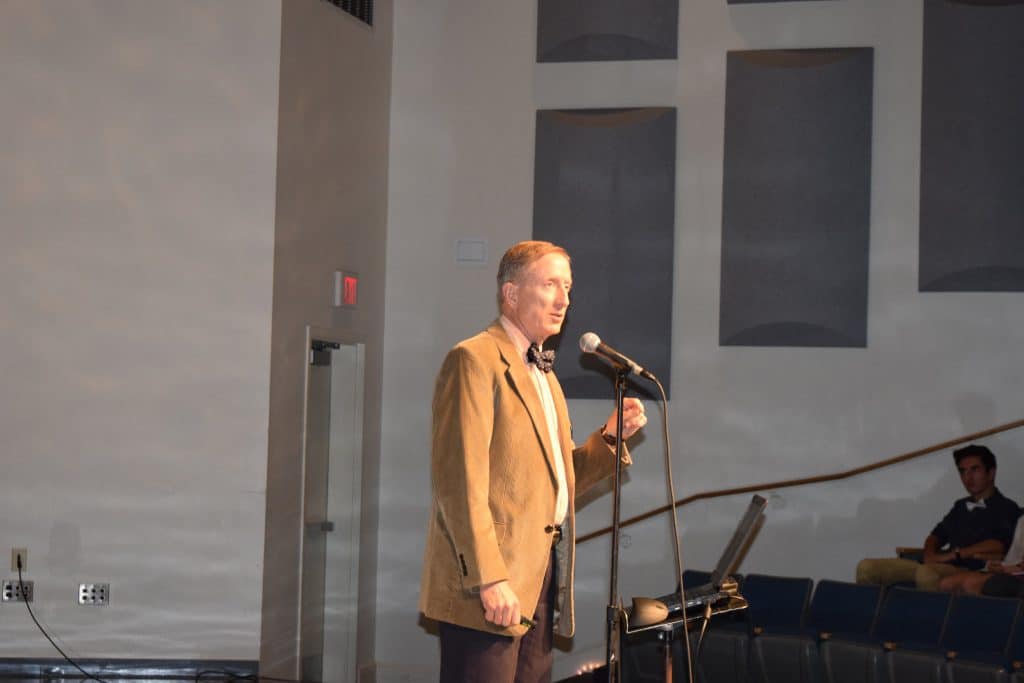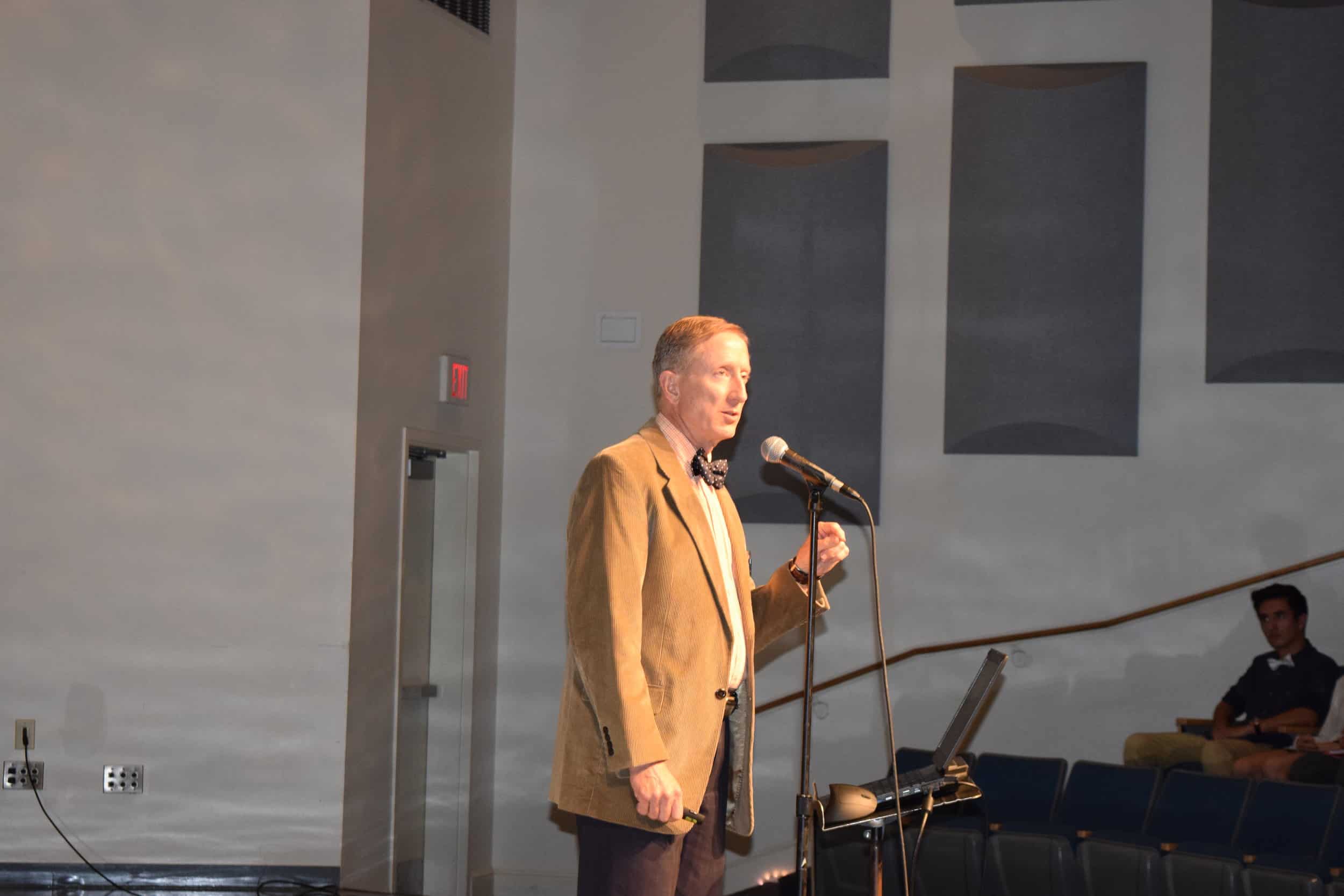
The hermeneutics of science: exactly how old is the earth?
Ashley Merck, Staff Writer
NGU professor of chemistry, Ronald Marks delivered his lecture of “The Hermeneutics of Science: You Cannot Not Beg The Question” on Sept. 20, 2016. Photo Courtesy of Ashley Merck
Ronald Marks, a North Greenville University chemistry professor, recently gave a lecture on the hermeneutics of science in Hamlin Hall.
Throughout Marks’ lecture, “The Hermeneutics of Science: You Cannot Not Beg The Question,” he shares many quotes and perspectives from early and modern day scientists about their opinions on the age of the earth in comparison to the biblical perspective.
Though Marks brought up many arguments throughout his lecture, a recurring theme of his talk was, ‘what or whom is the source of truth?’ In this question of authority, Marks uses biblical content to back up his answer.
“God, the Creator, the author of creation, knowledge, truth, gives that truth to the first man, Adam,” explains Marks.
He then dug deeper into the scripture of Genesis 2 and explained how God taught Adam the difference between obedience and disobedience, and how this circumstance was not a crisis of experience, rather it was a crisis of authority.
“Adam’s sin was to push God aside as the source of knowledge and truth, and claiming that he, Adam, could decide this for himself,” said Mark.
Because of Adam’s sin, the world has become corrupted and now lacks the fullness of truth and knowledge that God had granted Adam and Eve in the beginning. And also as a result of sin entering the world, “God is dead in science” because of corrupted human minds who want to learn and teach theories, such as evolution, as the only explanation of how everything came about.
As the lecture concluded, Marks held an interactive question and answer session with the audience members. Topics ranged from dinosaurs, to the flood, to evolution.
While this lecture was offered as a cultural event credit, a few NGU students who attended had great opinions of it.
“I thoroughly enjoyed Dr. Marks’ lecture., I found his presentation of Mary Schweitzer’s discovery of soft tissue in fossilized dinosaurs to support a young earth very interesting,” says sophomore biology major, Abie Hewitt.
“The hermeneutics lecture was extremely intriguing and full of new perspectives that made the mind race,” explains George Case, a freshman business administration major.
“The speaker was able to present his side of the argument in a way that captured the attention of his audience [members] as they went along the journey of scientific discovery that was in his presentation,” added Case.

